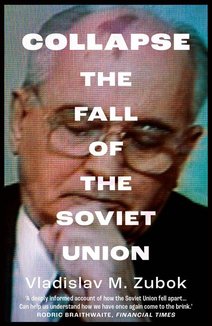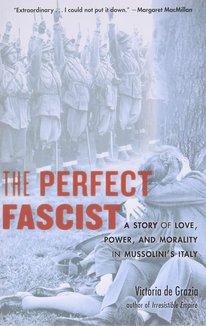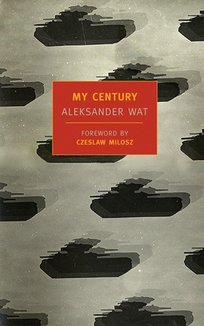Recommended Books

Collapse: The Fall of the Soviet Union
Author:
Vladislav M. Zubok
ISBN 13:
978-0300268171
A major study of the collapse of the Soviet Union—showing how Gorbachev’s misguided reforms led to its demise “A deeply informed account of how the Soviet Union fell apart.”—Rodric Braithwaite, Financial Times “[A] masterly analysis.”—Joshua Rubenstein, Wall Street Journal In 1945 the Soviet Union controlled half of Europe and was a founding member of the United Nations. By 1991, it had an army four million strong with five thousand nuclear-tipped missiles and was the second biggest producer of oil in the world. But soon afterward the union sank into an economic crisis and was torn apart by nationalist separatism. Its collapse was one of the seismic shifts of the twentieth century. Thirty years on, Vladislav Zubok offers a major reinterpretation of the final years of the USSR, refuting the notion that the breakup of the Soviet order was inevitable. Instead, Zubok reveals how Gorbachev’s misguided reforms, intended to modernize and democratize the Soviet Union, deprived the government of resources and empowered separatism. Collapse sheds new light on Russian democratic populism, the Baltic struggle for independence, the crisis of Soviet finances—and the fragility of authoritarian state power.

The Perfect Fascist: A Story of Love, Power, and Morality in Mussolini’s Italy
Author:
Victoria De Grazia
ISBN 13:
978-0674271067
A New Statesman Book of the Year Winner of the Helen and Howard R. Marraro Prize Winner of the Aldo and Jeanne Scaglione Prize for Italian Studies “Extraordinary…I could not put it down.” ―Margaret MacMillan “Reveals how ideology corrupts the truth, how untrammeled ambition destroys the soul, and how the vanity of white male supremacy distorts emotion, making even love a matter of state.” ―Sonia Purnell, author of A Woman of No Importance When Attilio Teruzzi, a decorated military officer and early convert to the Fascist cause, married a rising American opera star, his good fortune seemed settled. The wedding was blessed by Mussolini himself. Yet only three years later, Teruzzi, now commander of the Black Shirts, renounced his wife. Lilliana was Jewish, and fascist Italy would soon introduce its first race laws. The Perfect Fascist pivots from the intimate story of a tempestuous courtship and inconvenient marriage to the operatic spectacle of Mussolini’s rise and fall. It invites us to see in the vain, unscrupulous, fanatically loyal Attilio Teruzzi an exemplar of fascism’s New Man. Victoria De Grazia’s landmark history shows how the personal was always political in the fascist quest for manhood and power. In his self-serving pieties and intimate betrayals, his violence and opportunism, Teruzzi is a forefather of the illiberal politicians of today. “The brilliance of de Grazia’s book lies in the way that she has made a page-turner of Teruzzi’s chaotic life, while providing a scholarly and engrossing portrait of the two decades of Fascist rule.” ―Caroline Moorhead, Wall Street Journal “Original and important…A probing analysis of the fascist ‘strong man.’ De Grazia’s attention to Teruzzi’s private life, his behavior as suitor and husband, deepens and enriches our understanding of the nature of leadership in Mussolini’s regime and of masculinity, virility, and honor in Italian fascist culture.” ―Robert O. Paxton, author of The Anatomy of Fascism “This is a perfect book!…Its two entwined narratives―one political and public, the other personal and private―help us understand why the personal is political for those who insist on reshaping people and society.” ―Azar Nafisi, author of Reading Lolita in Tehran

My Century (New York Review Books Classics)
Authors:
Aleksander Wat
,
Richard Lourie
,
Czeslaw Milosz
ISBN 13:
978-1590170656
In My Century the great Polish poet Aleksander Wat provides a spellbinding account of life in Eastern Europe in the midst of the terrible twentieth century. Based on interviews with Nobel Prize winner Czeslaw Milosz, My Century describes the artistic, sexual, and political experimentation --in which Wat was a major participant-- that followed the end of World War I: an explosion of talent and ideas which, he argues, in some ways helped to open the door to the destruction that the Nazis and Bolsheviks soon visited upon the world. But Wat's book is at heart a story of spiritual struggle and conversion. He tells of his separation during World War II from his wife and young son, of his confinement in the Soviet prison system, of the night when the sound of far-off laughter brought on a vision of "the devil in history." "It was then," Wat writes, "that I began to be a believer."